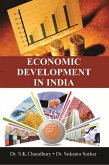In "Social Justice Without Socialism," John Bates Clark presents a compelling argument for the potential of capitalism to achieve social justice without the need for socialist frameworks. The book explores the interplay between economic theory and social ethics, emphasizing the moral obligations of individuals in a capitalist society. Clark's literary style is both incisive and accessible, blending rigorous analysis with real-world examples that illustrate the viability of his ideas. Written in the early 20th century, the work is situated within the broader context of progressive thought, challenging the prevailing notions of wealth distribution while advocating for a reformed capitalism that prioritizes social welfare. John Bates Clark was a prominent American economist, whose work significantly influenced the development of economic theory in the United States. His commitment to addressing the social issues of his time, alongside his critique of socialism, stems from his belief in the potential for capitalism to evolve positively. Clark's theories on marginal productivity and the function of entrepreneurship reflect his deep understanding of economic systems and their societal implications, making his insights relevant in discussions of equity and justice. "Social Justice Without Socialism" is essential reading for anyone interested in economic justice, political philosophy, or the mechanics of capitalism. Clark's nuanced arguments provide a robust counterpoint to socialist ideologies, making it a vital resource for students, scholars, and anyone seeking a deeper understanding of the balance between individual liberty and social responsibility in modern society.
Dieser Download kann aus rechtlichen Gründen nur mit Rechnungsadresse in A, B, BG, CY, CZ, D, DK, EW, E, FIN, F, GR, H, IRL, I, LT, L, LR, M, NL, PL, P, R, S, SLO, SK ausgeliefert werden.
Hinweis: Dieser Artikel kann nur an eine deutsche Lieferadresse ausgeliefert werden.









